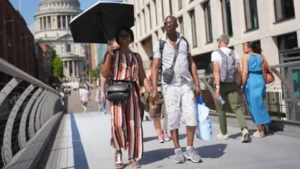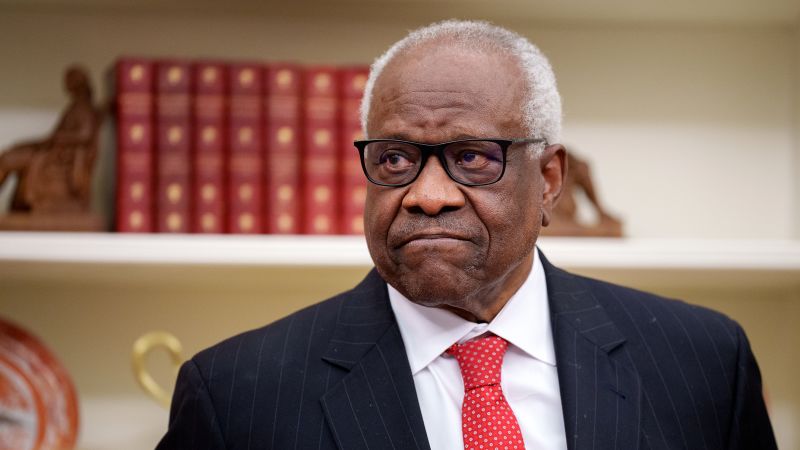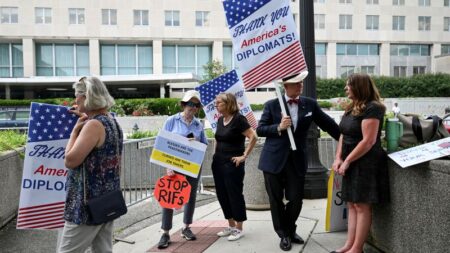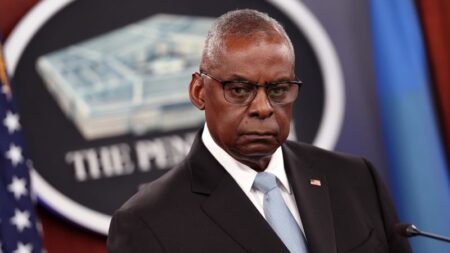Supreme Court Justice Clarence Thomas has long been a pivotal figure in the ongoing debate surrounding the Voting Rights Act (VRA). Since the mid-1990s, Thomas has argued for significant changes to the act, particularly targeting its provisions designed to protect the voting rights of African Americans, Hispanics, and other racial minorities. His contention is that the VRA not only fails to alleviate racial tensions but exacerbates them instead. His views, initially dismissed as radical within the Court, have gained momentum with the appointment of more conservative justices, prompting reevaluations of the Act’s legitimacy and applicability.
This evolving landscape reached a critical point with a recent Supreme Court case regarding redistricting in Louisiana, indicating that the justices may be reconsidering the extent of the VRA’s safeguards against practices that dilute minority electoral power. This issue is particularly urgent as several states, including Alabama, are resisting federal court mandates aimed at rectifying discriminatory voting practices. They face a backdrop where the federal government, under President Donald Trump, appears to be stepping back from its traditional role in safeguarding minority voting rights.
As the justices deliberate on this high-stakes Louisiana case, the implications of their decision extend to congressional maps that will influence elections not just in 2026, but for years to follow. The deliberations have turned partisan, primarily because African American voters tend to lean Democratic, raising questions about how race should factor into the drawing of congressional districts. The immediate context of this discussion is the Louisiana legislature’s attempt to create two Black-majority districts in response to a previous ruling, yet this legislative action has prompted claims of racial gerrymandering.
The Supreme Court’s decision-making process is cloaked in intrigue, especially as it became evident that they could not reach a consensus on the Louisiana case during their June sessions, leading to plans for a reargument in the Fall. In a rare move, the justices announced a need for an additional consideration of arguments, reminiscent of precedents like the landmark Citizens United decision, which radically altered campaign finance laws after reargument.
Justice Thomas, in a dissenting opinion concerning the June order, advocated forcefully for the court to strike down Section 2 of the VRA, which mandates the consideration of race in district drawing to ensure fair representation. Thomas posits that such considerations conflict with the constitutional guarantee of equal protection under the law. Although no other justices supported this dissent outright, Justice Neil Gorsuch has shown alignment with Thomas in earlier discussions about the Court’s problematic voting rights jurisprudence.
The philosophical divide became evident during oral arguments, where Chief Justice John Roberts and Justices Kavanaugh and Gorsuch expressed skepticism about race-conscious redistricting. Roberts highlighted the need for a “compact” district configuration, while Gorsuch suggested that using race as a factor in district construction might infringe upon the equal protection clause of the 14th Amendment. Both justices raised important questions regarding the fundamental criteria for fair representation without resorting to race-based considerations.
The specifics of the Louisiana case involve the original 2022 congressional map that featured only one Black-majority district, despite Black residents constituting one-third of the state’s population. Under judicial scrutiny, the state modified their map to establish two majority-minority districts, but this drew criticism from a demographic group of white voters alleging unconstitutional racial gerrymandering, coinciding with Thomas’s previous arguments.
Furthermore, legal discussions have been revived concerning whether individuals or advocacy organizations can sue under Section 2 of the VRA. Previous rulings have leaned towards allowing only the Department of Justice to initiate such claims, raising concerns about whether minority voters might now find themselves with less recourse to uphold their voting rights compared to citizens elsewhere.
Stuart Naifeh of the NAACP Legal Defense Fund has opposed Thomas’s views on the VRA, asserting that established legal precedents must be honored, particularly concerning the relationship between legislative autonomy and race considerations. This ongoing battle over the VRA is indicative of the broader struggle for minority voting rights in an increasingly polarized American political landscape, where the implications of the justices’ decisions could fundamentally reshape the tableau of electoral representation for years to come.
The discourse surrounding the Voting Rights Act and its implications for democracy underscores the legal tensions that the nation faces regarding race, representation, and justice; concerns which are made even more poignant as these legal battles continue to unfold within the nation’s highest court.











